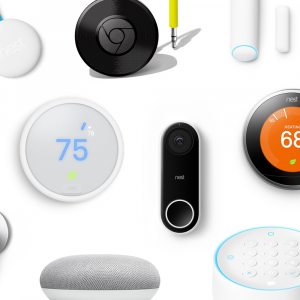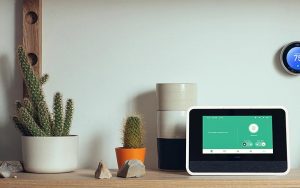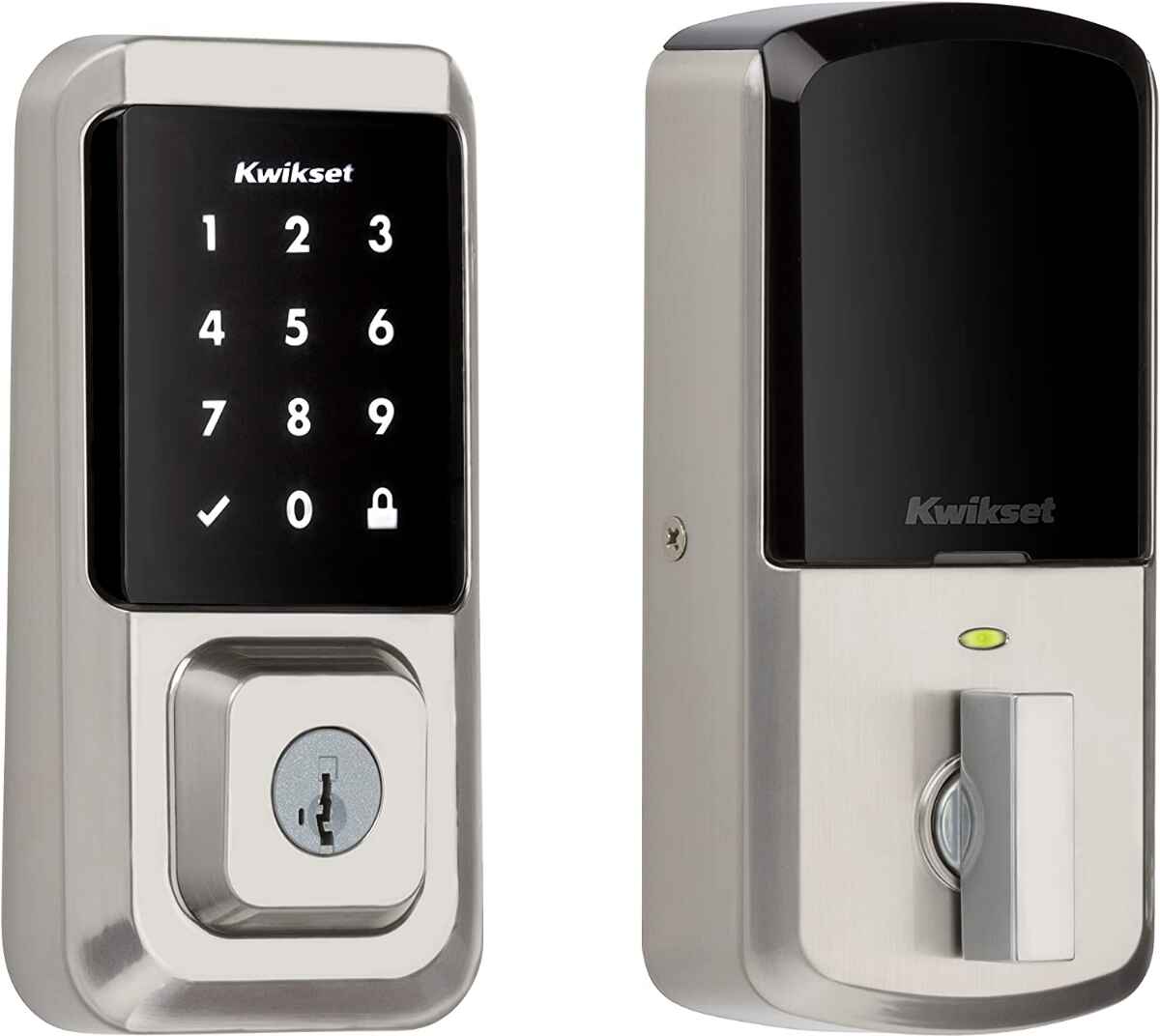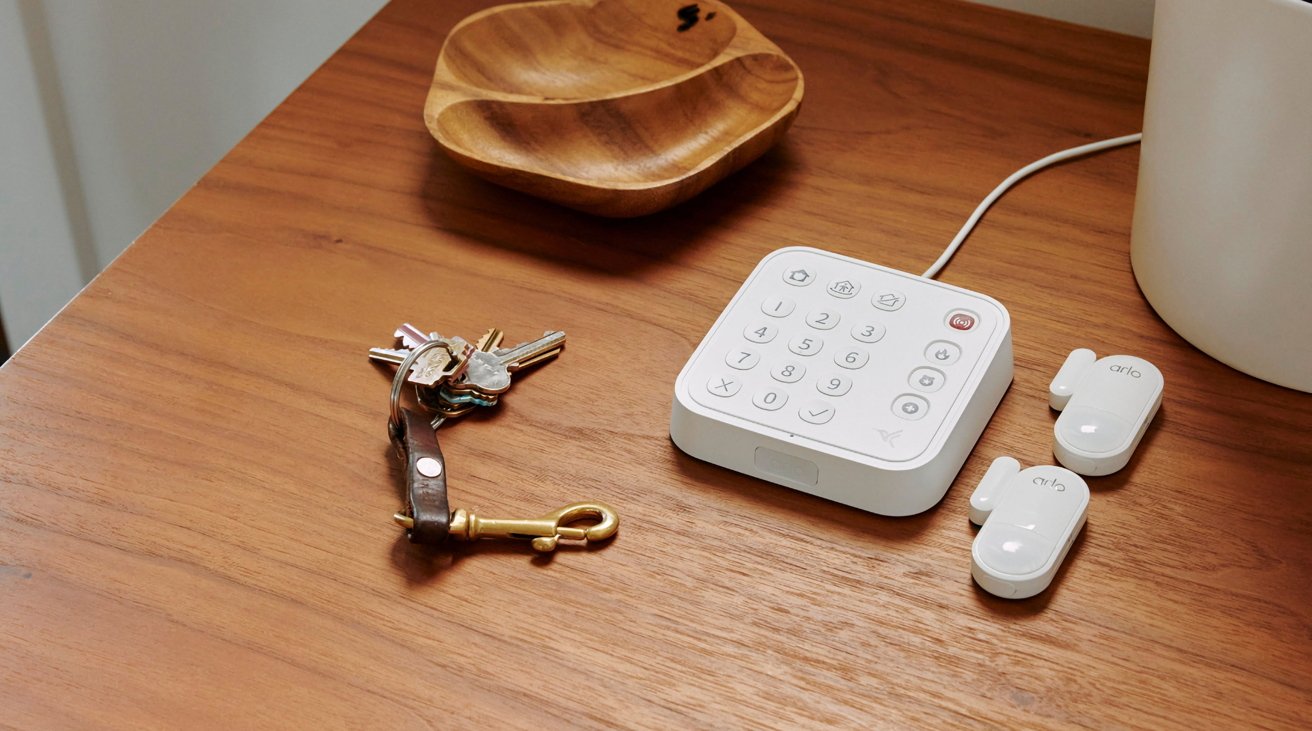Introduction
Welcome to the world of smart locks! Gone are the days of fumbling for keys or worrying about lost or stolen access. With a smart lock, you can upgrade the security of your home and enjoy the convenience of keyless entry. But before you dive into this innovative technology, it’s essential to understand the factors that affect the cost of a smart lock.
Smart locks offer a range of features and come in various price ranges to suit different budgets. These locks utilize advanced technology, combining Bluetooth, Wi-Fi, or even biometric capabilities to provide seamless and secure access to your home. Whether you’re looking for a basic option to get started or a high-end model with all the bells and whistles, there’s a smart lock out there for you.
In this article, we will explore the different factors that impact the cost of a smart lock, the various price ranges available in the market, and any additional costs you might encounter in the purchasing and installation process. By the end, you should have a clearer picture of how much you can expect to invest in a smart lock for your home.
But first, let’s discuss the factors that influence the pricing of smart locks. By understanding these key elements, you’ll be able to make a more informed decision when selecting the right smart lock for your needs and budget.
Factors that Affect the Cost of a Smart Lock
When it comes to smart locks, several factors influence their pricing. Understanding these factors will help you navigate the market and find the right smart lock that fits your budget and requirements. Here are the key factors that affect the cost of a smart lock:
- Brand and Reputation: The reputation and brand recognition of a smart lock manufacturer play a significant role in determining its price. Established brands often come with a higher price tag due to their proven track record and reliability.
- Lock Type: Different types of locks offer varying levels of security and convenience. Basic smart locks, such as keypad or keyless entry locks, tend to be more affordable compared to advanced models with biometric features or integrated cameras.
- Connectivity: Smart locks can connect to your home’s Wi-Fi network or use Bluetooth technology to communicate with your smartphone. Models with Wi-Fi connectivity generally come at a higher cost due to the additional hardware and advanced functionality they offer.
- Features and Functionality: The features and functionalities of a smart lock can greatly impact its price. Advanced features like voice control, geofencing, and integration with other smart home devices can increase the cost compared to more basic models.
- Security Level: The level of security provided by the smart lock also affects its price. High-security locks with advanced encryption and tamper-proof mechanisms tend to be more expensive than standard or basic models.
- Installation Method: Some smart locks require professional installation, while others can be easily installed by homeowners themselves. Models that necessitate professional installation may come with a higher price due to the added service.
It’s important to consider these factors and prioritize which features are essential for your needs. By understanding the different aspects that influence the cost, you can make a well-informed decision that aligns with your budget and security preferences. In the next sections, we’ll explore the different price ranges of smart locks available in the market, catering to different budgets and needs.
Basic Smart Locks: Affordable Options
If you’re on a budget or just starting your journey into smart home technology, basic smart locks offer a cost-effective solution without compromising on security. These entry-level options typically provide keyless entry through keypad codes or smartphone apps. While they may not have all the bells and whistles of higher-end models, they still offer convenience and enhanced security compared to traditional locks.
Basic smart locks are often available at a more affordable price point due to their simplicity and fewer advanced features. They are a great option for individuals or families who want a hassle-free way to enter their home without the need for physical keys. Additionally, these locks are relatively easy to install, making them a suitable choice for DIY enthusiasts.
Although basic smart locks may lack some of the advanced features found in higher-priced models, many still offer essential functionalities like remote access and the ability to create and manage multiple user codes. Some locks in this category may also have integration capabilities with popular smart home platforms, enabling you to control the lock through voice commands or automate its operation.
While the price range for basic smart locks can vary, you can typically find reliable options starting from around $$ to $$. These locks often provide a good balance between affordability and convenience, offering a stepping stone into the world of smart home security without breaking the bank. Keep in mind that cheaper models may have limited connectivity options or may require periodic battery replacement, so it’s essential to read reviews and choose a reputable brand.
In the next section, we’ll explore mid-range smart locks that offer a wider range of features and enhanced security measures for those seeking a bit more functionality from their smart lock.
Mid-Range Smart Locks: Balancing Features and Price
For individuals who desire a bit more functionality and security, mid-range smart locks are an excellent option. These locks offer a wide range of features while still being relatively affordable compared to high-end models. With mid-range smart locks, you can enjoy advanced security measures and additional convenience without breaking the bank.
One of the key advantages of mid-range smart locks is the increased connectivity options available. Many of these locks offer both Bluetooth and Wi-Fi connectivity, allowing for seamless integration with your smartphone and smart home ecosystem. This means you can control and monitor your lock from anywhere, receive notifications, and even grant temporary access to guests or service providers remotely.
Mid-range smart locks often come with enhanced security features such as advanced encryption, tamper alerts, and activity logs. Some models may also include built-in sensors that detect forced entry attempts and send alerts to your smartphone. These additional security measures provide peace of mind and protect your home from potential intrusions.
In terms of installation, mid-range smart locks usually offer both DIY and professional installation options. This flexibility allows you to choose the method that suits your skills and preferences. However, if you’re not confident in your DIY abilities, it’s recommended to enlist professional help to ensure proper installation and functionality.
When it comes to pricing, mid-range smart locks generally range from $$ to $$, depending on the brand, features, and connectivity options. While they may be higher in price compared to basic smart locks, they offer more advanced features, increased connectivity, and improved security, making them a popular choice for homeowners looking to upgrade their security while staying within a reasonable budget.
Next, we’ll explore high-end smart locks that offer cutting-edge technology, top-of-the-line security, and unmatched convenience for those who prioritize premium features and are willing to invest a little more.
High-End Smart Locks: Premium Security and Convenience
For those seeking the pinnacle of smart home security and convenience, high-end smart locks offer a combination of advanced technology, top-of-the-line security features, and unmatched convenience. While their price point may be higher compared to basic and mid-range options, the premium features and enhanced security make them a worthwhile investment for many homeowners.
High-end smart locks often incorporate the latest advancements in smart home technology. They may feature biometric authentication, such as fingerprint or facial recognition, ensuring only authorized individuals can gain access to your home. Some models also include advanced encryption algorithms and tamper-resistant designs, providing an extra layer of security against sophisticated hacking attempts and physical break-ins.
In addition to the robust security features, high-end smart locks offer a range of convenient functionalities. These locks can be integrated with your smart home ecosystem, allowing for seamless automation and control. You can create custom access codes for family members, friends, or service providers, easily manage permissions, and receive real-time notifications about lock activity.
High-end smart locks also prioritize convenience and ease of use. They often support multiple modes of access, including smartphone apps, key fobs, and physical keys as a backup option. Some models even have geofencing capabilities, automatically unlocking the door when you approach or locking it when you leave, eliminating the need to manually operate the lock.
When it comes to price, high-end smart locks typically range from $$ to $$, depending on the brand and features offered. While they may require a larger upfront investment, their advanced technology, premium security features, and convenience factors make them an attractive option for homeowners who value the highest level of security and convenience.
It’s important to remember that high-end smart locks may require professional installation due to their advanced features and complexity. Hiring a professional ensures proper setup, calibration, and integration with your existing smart home devices, optimizing the performance of your high-end smart lock.
Now that we’ve explored the different categories of smart locks and their associated costs, let’s take a look at some additional factors to consider when determining the overall cost of implementing a smart lock system in your home.
Additional Costs to Consider
When calculating the cost of a smart lock, it’s crucial to consider additional expenses that may arise during the purchasing and installation process. These costs can impact your overall budget and should be taken into account. Here are some key factors to consider:
- Smart Home Integration: If you already have a smart home ecosystem in place, ensure that the smart lock you choose is compatible with your existing devices and platforms. In some cases, you may need to purchase additional hubs or bridges to enable seamless integration, which can add to the overall cost.
- Power Source: Smart locks are typically battery-operated, so it’s important to factor in the cost of replacement batteries or rechargeable batteries. Some high-end models come with built-in rechargeable batteries, eliminating the need for constant battery replacements.
- Subscription Fees: Certain smart lock features, such as cloud storage for video recording, remote access, or advanced security monitoring, may require a subscription plan for full functionality. Make sure to consider any ongoing subscription fees when evaluating the long-term cost of smart lock ownership.
- Additional Accessories: Depending on your needs and preferences, you may want to invest in additional accessories to enhance the functionality and convenience of your smart lock system. This can include items such as additional key fobs, RFID cards, or smart doorbells.
- Professional Installation: While many smart locks can be installed by homeowners themselves, some may require professional assistance for proper installation and integration. Hiring a professional locksmith or smart home technician can ensure a seamless and secure installation process, but it comes with an additional cost.
By taking these additional costs into consideration, you can better estimate the overall investment required for a smart lock system. It’s advisable to research and compare prices, read user reviews, and consult with experts to ensure you choose the right smart lock that fits your budget and meets your specific needs.
Now that we have explored all the factors and costs involved in smart lock purchasing and installation, you are equipped with the knowledge to make an informed decision. Whether you opt for a basic model, a mid-range option, or a high-end smart lock, you’ll be able to enhance the security and convenience of your home with this innovative technology.
Smart Lock Installation: DIY or Professional Services?
When it comes to installing a smart lock, you have the option to either do it yourself (DIY) or hire professional locksmith or smart home installation services. Each approach has its own advantages and considerations, so it’s important to assess your abilities and preferences before making a decision.
Installing a smart lock yourself can be a cost-effective option, especially if you’re confident in your handyman skills. Most smart locks come with detailed instructions and step-by-step guides, making DIY installation relatively straightforward. Additionally, DIY installation allows you to have full control over the process and complete it at your own pace.
However, it’s important to note that installing a smart lock requires some technical knowledge and basic understanding of tools. Improper installation can affect the lock’s performance and compromise its security features. If you’re unsure about your abilities or want to ensure the installation is done correctly, it’s recommended to seek professional assistance.
Professional locksmiths or smart home installation services have the expertise and experience to install smart locks efficiently and correctly. They can ensure that the lock is properly aligned, calibrated, and integrated with your existing smart home devices. Professional installation is particularly crucial if you have high-end smart locks with advanced features, as these may require more intricate setup.
While professional installation comes with an additional cost, it provides peace of mind knowing that your smart lock is correctly installed and functioning optimally. Professional installers can also offer guidance on optimizing the lock’s settings, provide additional security recommendations, and address any concerns or questions you may have.
Before deciding on DIY or professional installation, consider the complexity of the smart lock, your technical skills, and your comfort level with DIY projects. If you’re confident in your abilities and have the necessary tools, DIY installation can be a rewarding and cost-effective option. However, if you prefer a hassle-free and professionally executed installation, it’s best to enlist the help of a qualified locksmith or smart home installation service.
No matter which installation method you choose, it’s important to carefully read the manufacturer’s instructions, follow the recommended installation steps, and test the lock thoroughly once installed to ensure it’s functioning as expected.
Now that you have an understanding of the installation process, you’re ready to embark on your smart lock journey and enjoy the security and convenience it brings to your home.
Conclusion
Smart locks offer a modern and convenient solution to enhance the security and accessibility of your home. Throughout this article, we have explored the factors that impact the cost of a smart lock, the different price ranges available, and additional costs to consider. By understanding these factors, you can make an informed decision and find the right smart lock that suits your needs and budget.
Basic smart locks provide an affordable option for those starting their journey into smart home technology. Mid-range smart locks offer a balance between features and price, providing increased connectivity and enhanced security measures. High-end smart locks boast top-of-the-line security features and convenience, catering to those who prioritize premium functionality and are willing to invest a little more.
In addition to the lock’s cost, it’s important to consider any additional expenses such as smart home integration, ongoing subscription fees, power sources, and professional installation. Taking these factors into account will give you a more accurate estimate of the overall investment required for a smart lock system.
When it comes to installation, you can choose between DIY or professional services. DIY installation allows for cost savings and full control over the process, but it requires technical skills and knowledge. Professional installation ensures proper setup and integration, providing peace of mind and optimal performance.
Ultimately, the decision on which smart lock to choose and how to install it depends on your budget, security needs, technical abilities, and personal preferences. By considering these factors and doing thorough research, you can find the perfect smart lock that seamlessly fits into your home and lifestyle.
Now it’s time to embrace the convenience, security, and peace of mind that a smart lock can bring to your home. Upgrade your home security while enjoying the ease of keyless entry and advanced control over your front door access. Whether you opt for a basic, mid-range, or high-end smart lock, you’ll be taking a step forward into the future of home security.

























